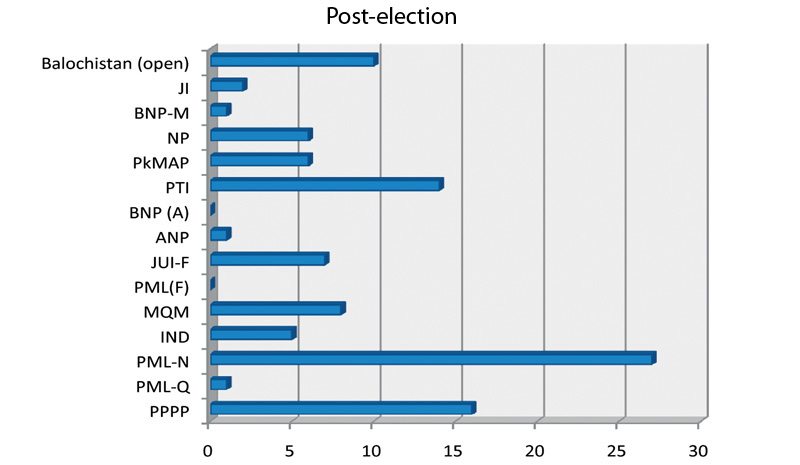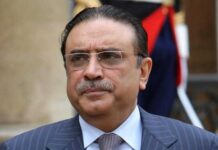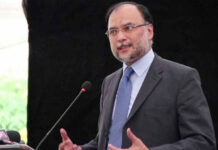Lahore: The upper house of the Parliament or Senate of Pakistan is dominated by Pakistan Muslim League-Nawaz (PML-N) with 27 Senators, followed by Pakistan People’s Party (PPP) that has 26 Senators.
Following is the share of other parties in the upper house: Muttahida Qaumi Movement (MQM) has eight seats, Pakistan Tehreek-e-Insaf (PTI) has seven, Awami National Party (ANP) has six, Jamiat-Ulema-e-Islam (F) has five, Pakistan Muslim League-Q has four, National Party (NP) and Pakhtunkhwa Milli Awami Party (PkMAP) have three each, Balochistan National Party-Awami (BNP-A) has two, Balochistan National Party (BNP-M), Pakistan Muslim League-F (PML-F), and Jamaat-e-Islami (JI) have one each. There are 10 independents senators.
Daily Times’ assessment in light of interviews with experts suggest the following party position in Senate following March polls: PPP is likely to win at least eight seats and increase its strength to 16; PML-N is likely to win up to nine seats, mostly from Punjab, and maintain its current strength of 27 seats; PTI’s seven seats from KP will help it double its strength to 14; if MQM manages to secure only three seats, its strength will come down from nine to seven seats; JUI-F may win seats from Balochistan and KP and increase its tally from five to up to seven; both PkMAP and NP are set to increase their strength to six each. PML-Q will lose its numbers from four to possibly just one after the election and JI is likely to increase its number from one to two.
According to Senate of Pakistan, election to fill seats allocated to each province is held in accordance with the system of proportional representation by means of the single transferable vote. The Senate is not subject to dissolution, but the term of its members is for six years. Half of the Senate members retire after every three years.
Earlier, there were reports that PTI Chairman Imran Khan was considering to dissolve the KP assembly to create hurdles in the upcoming elections. However, opposition leader in Senate, Aitzaz Ahsan, later said that dissolution of any of provincial assemblies would not derail or postpone the Senate polls. The upper house business would continue unaffected because it would still have at least 50 percent representation from each province, he said. According to Senate procedures, if any provincial chief minister moves to dissolve the provincial assembly, members of the new assembly would then elect their Senate members after the general election.
Published in Daily Times, February 5th 2018.
















